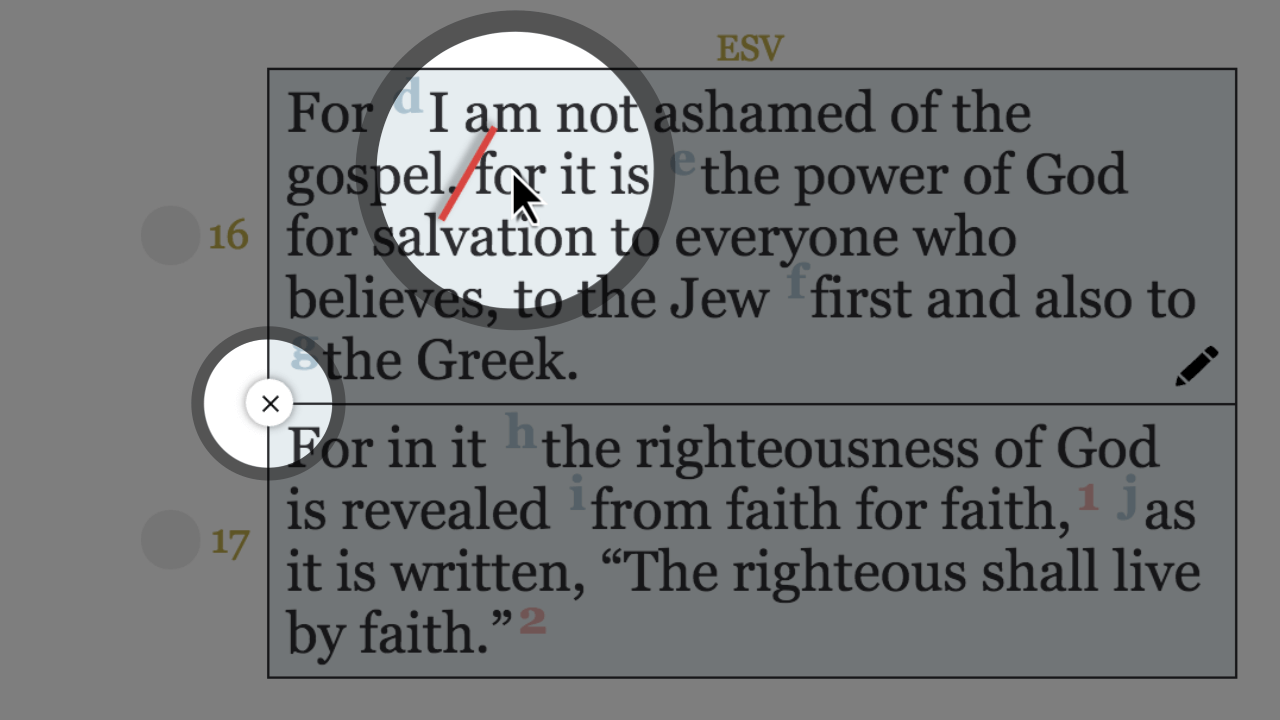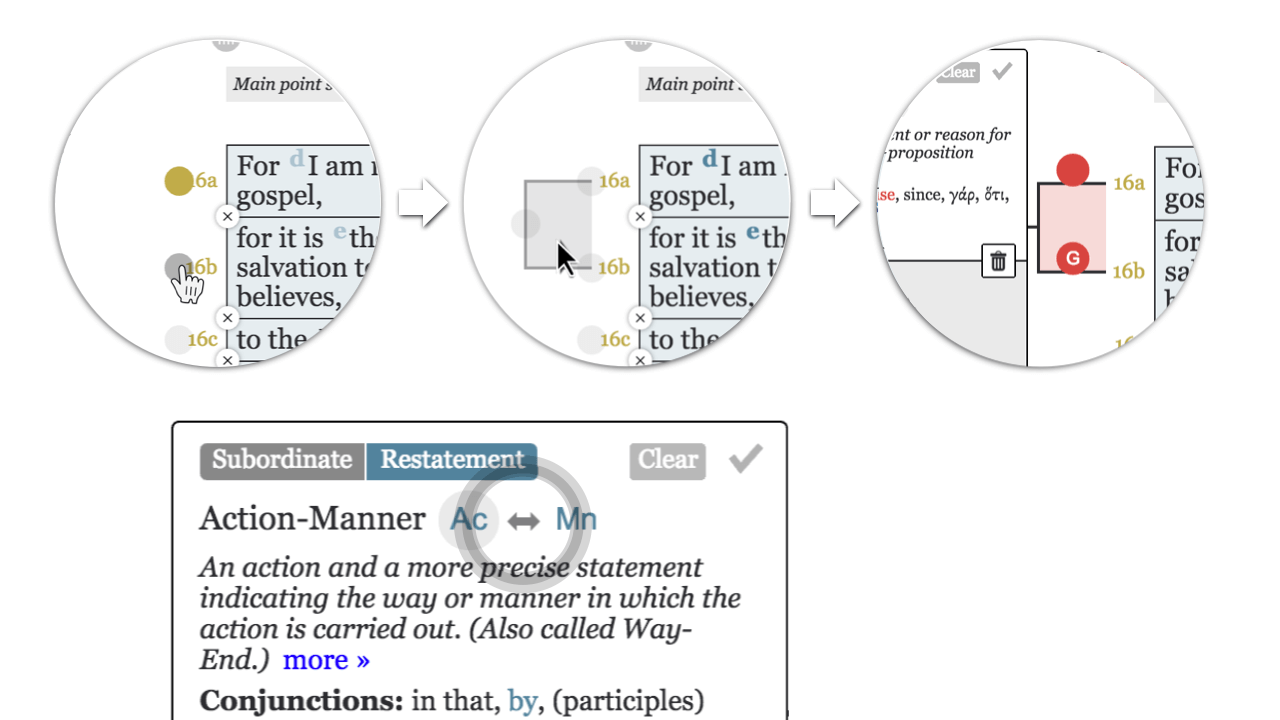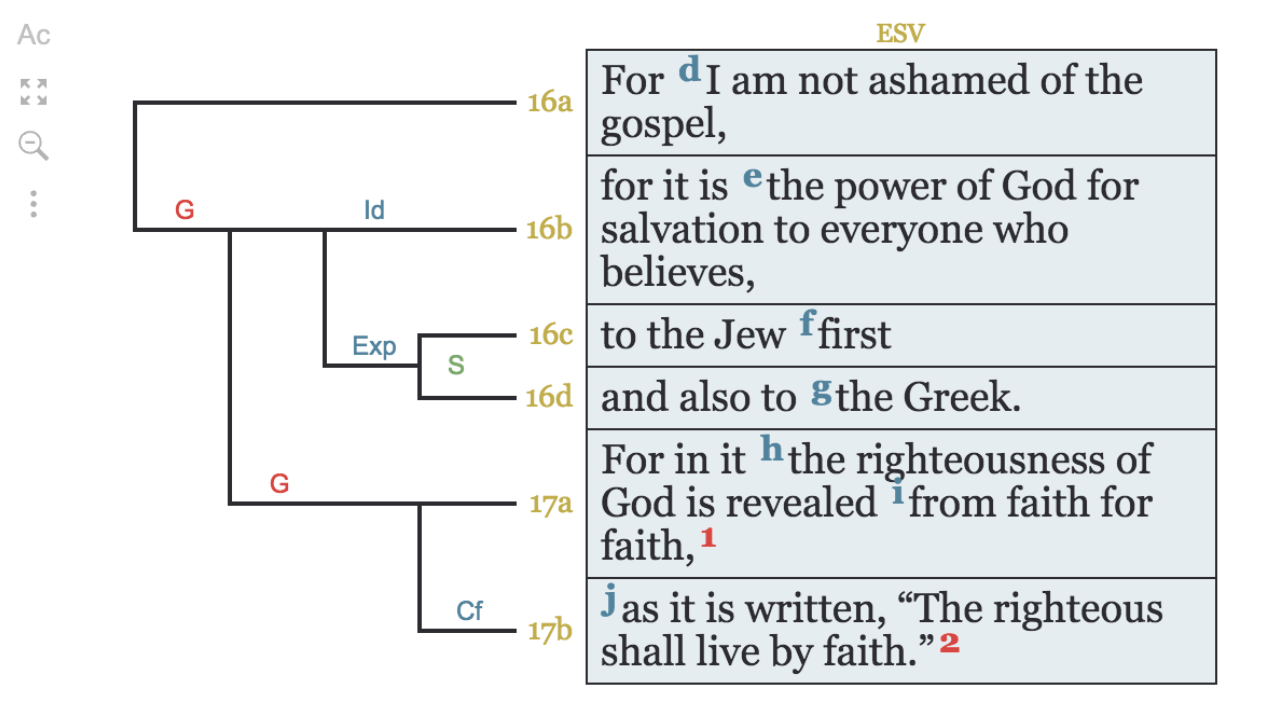Lesson 5 | Bracketing a Passage
Using the Module
The upcoming practice step in this lesson will have you work through your first bracket of the course. To be able to do so, you are going to need to know how to use the Bracketing module. (Within the course, the module will be within the page itself, prepared for you to use, and so you won’t yet need to utilize everything in the following instructions. But they are here to help you create brackets on the Biblearc TOOLS site on your own.)
Using the Discourse module
1. Opening a new project
Click on the three horizontal lines in the upper left-hand corner. Then, select the “Create a New Project” button.
2. Create a new module
Click the gray + icon whenever you want to add a module. Then, select Bracket and choose a passage.
3. Understand editing mode
When you want to make changes to your bracket, toggle Editing on. You may also use the spacebar as a shortcut for toggling in and out of editing mode.
4. Adjust how Bible versions are displayed
Click the passage reference at the top of the module to add, remove, and hide Bible versions. Use the column dots to adjust their width.
5. Split propositions
Click on a word to have it begin a new proposition. Click an X on the left to rejoin two propositions.

6. Draw brackets and indicate relationships
Click the dots where you would like the bracket to begin and end. Indicate a relationship by clicking the new bracket. Click the double arrow to switch the order of a relationship.

7. Know when you are done
You know you have indicated all necessary relationships when you have a bracket over the entire passage and none of the brackets are grey.

8. Use dot notes
Record insights and questions as you arc by using the round + button that appears next to the Editing toggle when in Editing mode.